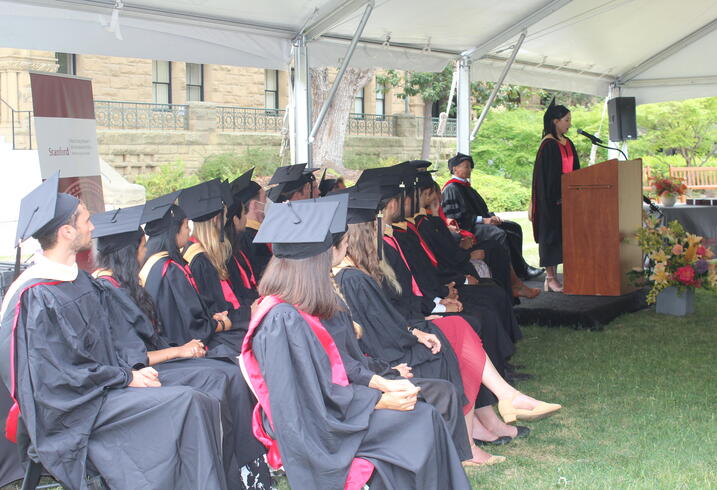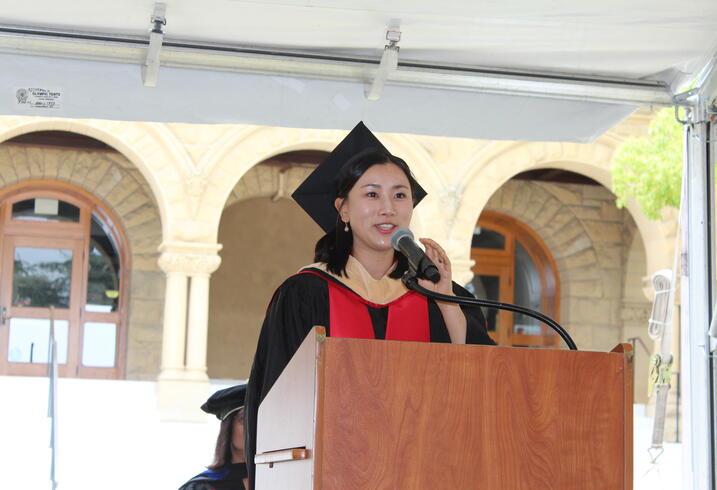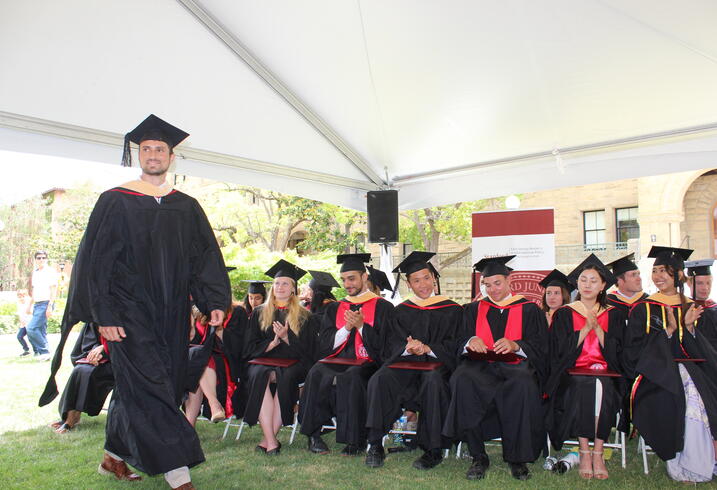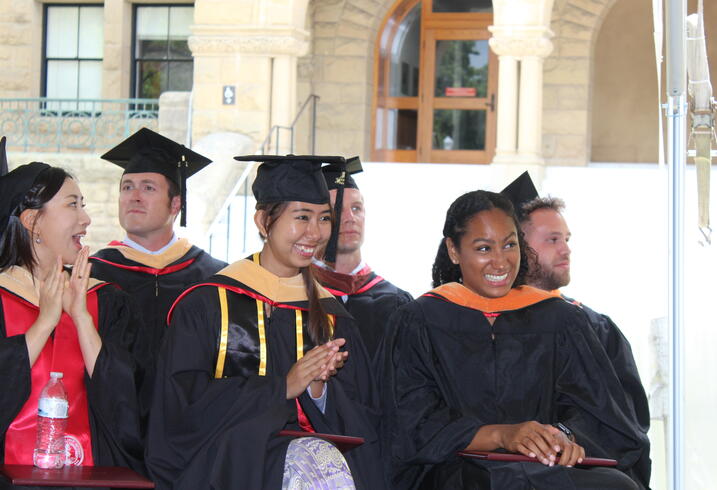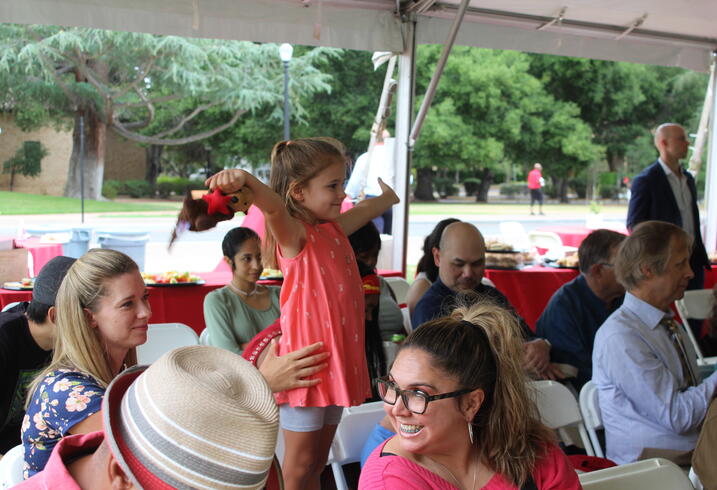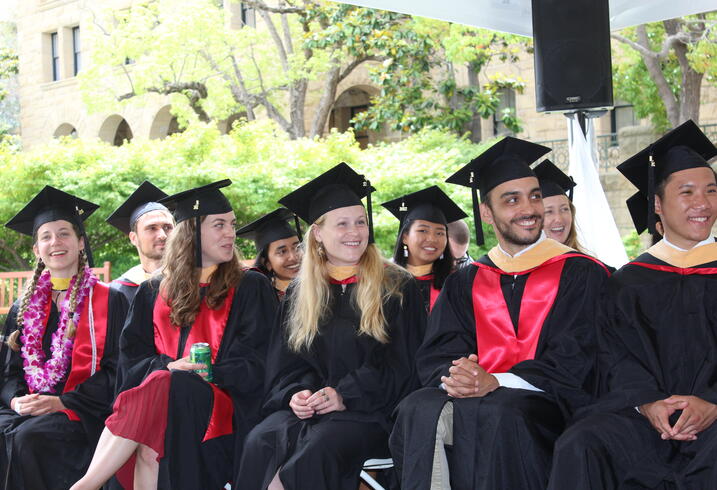Asked to summarize his biography and career, Donald K. Emmerson notes the legacy of an itinerant childhood: his curiosity about the world and his relish of difference, variety and surprise. A well-respected Southeast Asia scholar at Stanford since 1999, he admits to a contrarian streak and corresponding regard for Socratic discourse. His publications in 2014 include essays on epistemology, one forthcoming in Pacific Affairs, the other in Producing Indonesia: The State of the Field of Indonesian Studies.
Emmerson is a senior fellow emeritus at the Freeman Spogli Institute for International Studies (FSI), an affiliated faculty member of the Center on Democracy, Development and the Rule of Law, an affiliated scholar in the Abbasi Program in Islamic Studies, and director of the Southeast Asia Program at the Shorenstein Asia-Pacific Research Center. Recently he spoke with Shorenstein APARC about his life and career within and beyond academe.
Your father was a U.S. Foreign Service Officer. Did that background affect your professional life?
Indeed it did. Thanks to my dad’s career, I grew up all over the world. We changed countries every two years. I was born in Japan, spent most of my childhood in Peru, the USSR, Pakistan, India and Lebanon, lived for various lengths of time in France, Nigeria, Southern Rhodesia (now Zimbabwe) and the Netherlands, and traveled extensively in other countries. Constantly changing places fostered an appetite for novelty and surprise. Rotating through different cultures, languages, and schools bred empathy and curiosity. The vulnerability and ignorance of a newly arrived stranger gave rise to the pleasure of asking questions and, later, questioning the answers. Now I encourage my students to enjoy and learn from their own encounters with what is unfamiliar, in homework and fieldwork alike.
Were you always focused on Southeast Asia?
No. I had visited Southeast Asia earlier, but a fortuitous failure in grad school play a key role in my decision to concentrate on Southeast Asia. At Yale I planned a dissertation on African nationalism. I applied for fieldwork support to every funding source I could think of, but all of the envelopes I received in reply were thin. Fortunately, I had already developed an interest in Indonesia, and was offered last-minute funding from Yale to begin learning Indonesian. Two years of fieldwork in Jakarta yielded a dissertation that became my first book, Indonesia’s Elite: Political Culture and Cultural Politics. I sometimes think I should reimburse the African Studies Council for covering my tuition at Yale – doubtless among the worst investments they ever made.
Indonesia stimulated my curiosity in several directions. Living in an archipelago led me to maritime studies and to writing on the rivalries in the South China Sea. Fieldwork among Madurese fishermen inspired Rethinking Artisanal Fisheries Development: Western Concepts, Asian Experiences. Experiences with Islam in Indonesia and Malaysia channeled my earlier impressions of Muslim societies into scholarship and motivated a debate with an anthropologist in the book Islamism: Contested Perspectives on Political Islam.
What led you to Stanford?
In the early 1980s, I took two years of leave from the University of Wisconsin-Madison to become a visiting scholar at Stanford, and later I returned to The Farm for shorter periods. At Stanford I enjoyed gaining fresh perspectives from colleagues in the wider contexts of East Asia and the Asia-Pacific region. In 1999, I accepted an appointment as a senior fellow in FSI to start and run a program on Southeast Asia at Stanford with initial support from the Luce Foundation.
As a fellow, most of your time is focused on research, but you also proctor a fellowship program and have led student trips overseas. How have you found the experience advising younger scholars?
In 2006, I took a talented and motivated group of Stanford undergrads to Singapore for a Bing Overseas Seminar. I turned them loose to conduct original field research in the city-state, including focusing on sensitive topics such as Singapore’s use of laws and courts to punish political opposition. Despite the critical nature of some of their findings, a selection was published in a student journal at the National University of Singapore (NUS). NUS then sent a contingent of its own students to Stanford for a research seminar that I was pleased to host. I encouraged the NUS students to break out of the Stanford “bubble” and include in their projects not only the accomplishments of Silicon Valley but its problems as well, including those evident in East Palo Alto.
That exchange also helped lay the groundwork for an endowment whereby NUS and Stanford annually and jointly select a deserving applicant to receive the Lee Kong China NUS-Stanford Distinguished Fellowship on Contemporary Southeast Asia. The 2014 recipient is Lee Jones, a scholar from the University of London who will write on regional efforts to combat non-traditional security threats such as air pollution, money laundering and pandemic disease.
Where does the American “pivot to Asia” now stand, and how does it inform your work?
Events in Iran, Iraq, Afghanistan, Syria and now in Crimea as well, have pulled American attention away from Southeast Asia. Yet the reasons for priority interest in the region have not gone away. East Asia remains the planet’s most consequential zone of economic growth. No other region is more directly exposed to the potentially clashing interests and actions of the world’s major states – China, Japan, India and the United States. The eleven countries of Southeast Asia – 630 million people – could become a concourse for peaceful trans-Pacific cooperation, or the locus of a new Sino-American cold war. It is in that hopeful yet risky context that I am presently researching China’s relations with Southeast Asia, especially regarding the South China Sea, and taking part in exchanges between Stanford scholars and our counterparts in Southeast Asia and China.
Tell us something we don’t know about you.
Okay. Here are three instructive failures I experienced in 1999, the year I joined the Stanford faculty. I was evacuated from East Timor, along with other international observers, to escape massive violence by pro-Indonesian vigilantes bent on punishing the population for voting for independence. The press pass around my neck failed to protect me from the tear gas used to disperse demonstrators at that year’s meeting of the World Trade Organization – the “Battle of Seattle.” And in North Carolina in semifinal competition at the 1999 National Poetry Slam, performing as Mel Koronelos, I went down to well-deserved defeat at the hands of a terrific black rapper named DC Renegade, whose skit included the imaginary machine-gunning of Mel himself, who enjoyed toppling backward to complete the scene.
The Faculty Spotlight Q&A series highlights a different faculty member at Shorenstein APARC each month giving a personal look at his or her teaching approaches and outlook on related topics and upcoming activities.




